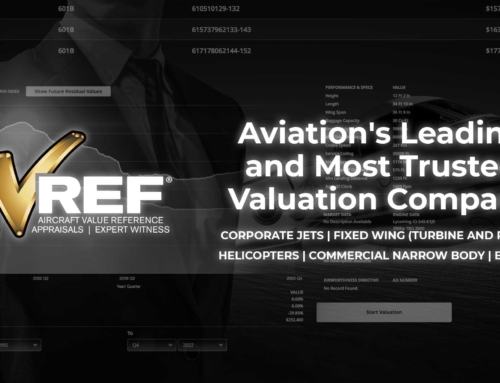Helicopters are a great investment simply because they retain most of their valueover time. But, a proper helicopter valuation will provide the true value of any helicopter on the market.
Helicopter valuations are conducted by a professional aircraft appraiser. These inspectors will examine each helicopter, much like a home inspection, to ensure that the aircraft is meeting proper standards and is valued fairly.
An inspection with negative marks, however, means that a buyer will have room to negotiate the price down. This is why it’s essential for sellers to keep their helicopters in excellent shape and have their own inspection conducted before putting the aircraft on the market.
By having an inspection done prior to meeting with any buyers, the seller can then be more firm on their price point. Simply put, the buyer won’t have any identifiable reason to ask for a lower selling price.
So, what elements are critical to any helicopter valuation? Read on to find out.
Helicopter Valuation: 5 Critical Points of Inspection
The first successful helicopter was flown in the U.S. in the 1940s. Since then, helicopters have been used for a variety of reasons from sightseeing to transporting patients from accident scenes.
To ensure that helicopters are able to maintain their integrity, regular maintenance needs to be performed. A helicopter valuation will review many aspects of the helicopter before a price point is determined. Explore the following critical elements a helicopter valuation will cover.
1. Records
Accurate logbooks are essential and required for every aircraft. Logbooks should contain flight hours, maintenance, and component upgrades. If a logbook is inaccurate or missing important details, an inspector has the authority to shut down the helicopter and/or an entire operation.
Provide the aircraft appraiser with all records and make sure they are accurate and up-to-date. As a seller, this will ensure that you get the most out of your helicopter.
2. Status of Components
Like any vehicle or aircraft, components age and need to be replaced. Helicopters have many components and these components need to be maintained and upgraded as they age. They also need to be replaced based on flight time.
3. Hours of Utilization
Flight hours will also determine the resale value of the helicopter. A helicopter with more flight time will generally be valued for less whereas a helicopter with less flight time will have a higher value. How and what the helicopter was used for will also factor into the valuation.
4. Operating Environments
Flight regulations and laws vary by country. The country where the helicopter is registered, therefore, will factor into its overall value.
The country of registration will also affect financing which can lead to higher selling prices because of higher financing risks.
5. Market Value
The market will also be a critical determination in a helicopter valuation. For example, how long the helicopter has been on the market, supply and demand, and the interest in the model itself.
Helicopter Valuation: What’s Your Helicopter Worth?
A helicopter valuation will help a seller to determine their helicopter’s value is. The seller, however, always has the option to complete upgrades and refurbishing to improve the helicopter’s value.
The buyer should also know these critical elements of valuation to determine if they’re getting the best deal available.
Want to know what a helicopter is truly worth? Check out our website to learn about our appraisal services.




